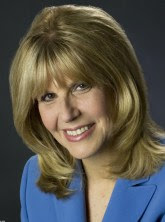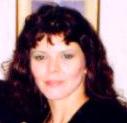 Since my new book, The Profiler: My Life Hunting Serial Killers and Psychopaths (co-written with Bob Andelman) has hit the stands, I have been fielding many questions about my entrance into profiling, my profiling work and the cases in the book. But, today, I am going to respond to some interesting comments made on Amazon.
Since my new book, The Profiler: My Life Hunting Serial Killers and Psychopaths (co-written with Bob Andelman) has hit the stands, I have been fielding many questions about my entrance into profiling, my profiling work and the cases in the book. But, today, I am going to respond to some interesting comments made on Amazon.
As I expected would occur when The Profiler came out, I would have some great reviews and some not so great reviews. I am lucky to have people who are wonderful supporters of me and my work, but there are others who simply despise me, for whatever reasons. Since I am very outspoken about my beliefs about profiling, criminals, and crime, I can expect to get a number of detractors. Some people I just rub the wrong way and that is life. Some people rub me the wrong way too but they have folks who think they are great! It takes all kinds of us to make the world go round.
As I read through my Amazon reviews, I saw some legitimate criticisms and some bizarre criticisms and some folks that didn't understand something about me and the book. So, I am going to try to clear at least a few of these things up.
1) Although Pat's Brown's renter was weird, there was obviously not enough to warrant an investigation by the police
Actually, the police reopened the case six years later and brought the renter in, interrogated him, polygraphed him, DNA'd him, and investigated him. He is still the Number One suspect and he lives one mile down the road from me.
2) Pat makes wild guesses, follows her "gut."
I find this criticism amusing because one of the big points I make in the book is that too much profiling HAS been guesswork and gut feelings. I promote the scientific method and for each determination I make, I support my conclusions with physical and behavioral evidence.
3) Pat may have a degree in Criminal Justice, but she is not a psychologist or scientific researcher in human factors. I have to believe in her mind her TV appearances and radio show appearances have qualified her as a premier profiler.
In the book, I address the educational requirements criminal profilers should have. Many people think a criminal profiler should be a psychiatrist or psychologist and others think criminal profilers should be forensic scientists. But, in reality, much of what one learns in graduate level college programs in these fields does not apply to profiling. And, if one studies just one of these fields, then one lacks the needed understanding from the other fields. Criminal profiling draws from psychology, forensics, and investigations and then adds in crime scene reconstruction and profiling methodology. In order to meet these needs, I have developed the first criminal profiling certificate program in the country and I am developing The Pat Brown School of Criminal Profiling.
It IS true that being on television does not make one a profiler; it makes one a commentator. I don't profile on television; I discuss crime and the criminal mind and what might have happened based on what the media is telling us.
4) "Offender profiling is a method of identifying the perpetrator of a crime based on an analysis of the nature of the offense and the manner in which it was committed. Various aspects of the criminal's personality makeup are determined from his or her choices before, during, and after the crime.[1] This information is combined with other relevant details and physical evidence, and then compared with the characteristics of known personality types and mental abnormalities to develop a practical working description of the offender." Pat doesn't profile; she just does detective work.
I understand where this person is coming from. It may well seem that I am just doing what detectives do; that I don't "profile" because I don't do what is known as "offender profiling." And I don't do offender profiling because I do not believe in it. This kind of profiling is very generalized and when profilers look at a series of linked crimes, they often apply a whole slew of characteristics from one subgroup of offenders to that particular offender. I have never found these "profiles" to be of much value; they are based on statistics and somewhat questionable research conclusions and they use for catching criminals has not been proven. I DO describe something about the kind of person who committed a crime, what his motive is, and what behaviors he exhibited in the crime and what I expect him to exhibit outside of the crime scene. but based on the evidence at that specific crime scene or scenes and while there are some general groups offenders fall into, I believe in being more specific about the perpetrator in each crime. I base my description of him on evidence and I do not use confusing academic labels and general characteristics (based on everyone in the supposed group he falls in to).
My style of profiling is deductive profiling requires a thorough crime reconstruction and analysis of all the evidence before one can start addressing the offender's characteristics. And although the offender may fall in some broad category, I will not make any inferences about him based on that offender group alone.
5) Pat Brown is a homemaker who read some books.
Wow! Am I still 34 years old? Cool! Actually, 20 years ago I read the 400 books that helped me understand the field. This was just the beginning of my education, training, and practice of profiling. This comment that makes me the saddest of all that I have read that is negative. It is so hard for women, even in this country and day and age, to move up in certain professions and it is all the more difficult if they are over forty. I am hoping to inspire women and open doors for them. Sometimes women are their own worst enemy when they attack the relatively few women who made some progress in very male professions. We should stick together and cheer each other on, shouldn't we?
6) If Pat Brown can profile, then all these cases should have been prosecuted.
Oh, don't I wish! But when a profiler is brought in years later, most of the time the evidence is gone. This is why the profiler needs to be part of the original investigative team. If the profiler is there when the crime is fresh, an excellent analysis can send the detectives in the correct direction where they can find the evidence and preserve it.
6) Pat Brown is paranoid, narcissistic, psychopathic, and creepy.
Oh, dear, maybe that is why I understand psychopaths so well; it takes one to know one?
The Profiler: My Life Hunting Serial Killers and Psychopaths wasn't written to impress folks or to defend my work. It is meant to bring the truth to people about killers that are living among us, how the system is struggling, how justice is getting waylaid, how profiling really should be done, and how profiling can make a difference in solving cases if only the police would use it when the case is still very young. I hope one day, someone will pick the book up off a dusty used bookstore shelf, read it, and think, "Wow! Can you believe that they once waited for years to bring a profiler in?" I hope one day the country will have a profiler in every major police department and profilers available to help all the smaller police agencies.
If I wake up one day to that world, I will know my efforts have been worth it.
Criminal Profiler Pat Brown
 "I am SICK of hearing about Joran van der Sloot! Why aren't we talking about Kyron Horman, the missing Oregon seven-year-old?" (Actually, his case IS back in the news now that the stepmother has become a Person of Interest). I hear this kind of sentiment quite often. When we were talking about Casey Anthony day in and day out, people asked why we weren't talking about Baby Gabriel anymore. Or when the Haleigh Cummings case was a constant topic after a majority of the players were busted for selling drugs, I heard, "Why aren't we talking about Kayleah Wilson?" I will explain exactly why.
"I am SICK of hearing about Joran van der Sloot! Why aren't we talking about Kyron Horman, the missing Oregon seven-year-old?" (Actually, his case IS back in the news now that the stepmother has become a Person of Interest). I hear this kind of sentiment quite often. When we were talking about Casey Anthony day in and day out, people asked why we weren't talking about Baby Gabriel anymore. Or when the Haleigh Cummings case was a constant topic after a majority of the players were busted for selling drugs, I heard, "Why aren't we talking about Kayleah Wilson?" I will explain exactly why. Haleigh Cumming's case. Umm.....nothing really new. The scumbags are sitting around in jail. Two weeks ago Misty Croslin got a new trial date and last week Donna Brock plead guilty. Yawn.
Haleigh Cumming's case. Umm.....nothing really new. The scumbags are sitting around in jail. Two weeks ago Misty Croslin got a new trial date and last week Donna Brock plead guilty. Yawn.
 abriel Johnson case. Three weeks ago doctors said Elizabeth Johnson, baby Gabriel's poor excuse for a mother, is not competent to stand trial. Boy, did she pull one over on them. Gabriel, still missing.
abriel Johnson case. Three weeks ago doctors said Elizabeth Johnson, baby Gabriel's poor excuse for a mother, is not competent to stand trial. Boy, did she pull one over on them. Gabriel, still missing.




